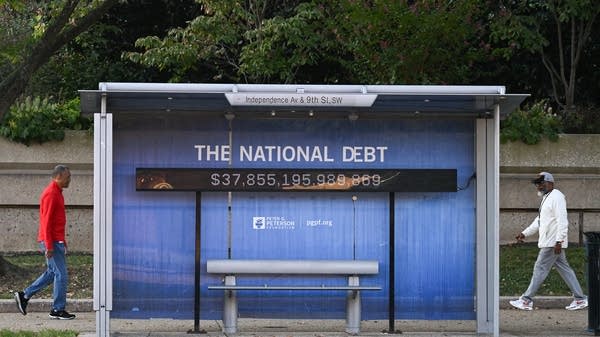Tax breaks are popular. They also cost the federal government more than $1 trillion a year.
In the debate over the debt and deficit, experts say tax breaks that skew toward the wealthy deserve as close a look as government spending.

The winners of the federal elections in November will have the opportunity to reshape the nation’s tax code. One key reason is that the next president and Congress will be in office when many parts of the 2017 Tax Cuts and Jobs Act, also known as the Trump-era tax reforms, expire at the end of 2025.
That has a lot of folks in Washington already thinking about how to tweak the tax code, especially in light of the growing national debt and the growing attention focused on it. Some are taking a hard look at tax breaks.
The government gets most of its money from taxes paid by people and companies, and tax breaks are often used as incentives to get those people and companies to behave in certain ways.
“They are intended typically to encourage certain behavior that perhaps policymakers have decided is worth subsidizing,” said Samantha Jacoby, deputy director of federal tax policy at the Center on Budget and Policy Priorities. That can include breaks for having children, saving for retirement or buying a home. But, Jacoby said, “they’re overall tilted towards people who have a lot of income. Many of them are in the form of tax deductions.”
This is especially true since the passage of the 2017 tax law, which increased the standard deduction and reduced the number of households that itemize to just 11%, said Jacoby. “And the people who do still itemize tend to be mostly high-income,” she added.
From a government accountant’s point of view, those tax breaks are just another kind of government spending, which is why they’re known as tax expenditures. CBPP added them up and calculated that they can total more than $1.3 trillion a year. The Treasury Department tracks tax expenditures but generally avoids giving a total cost because the way some of the allowances interact can affect who might take advantage of certain programs if others were repealed.
“The [tax expenditures] that would … make big dents in the national debt problem are more politically popular,” said Gerald Prante, a professor of economics at the University of Lynchburg in Virginia. “It’s the exclusion of employer-provided health insurance, it’s the child tax credits and your earned income tax credit. It’s the mortgage-interest deduction. It’s those types of tax breaks.”
And eliminating — or even reducing — those breaks, he said, is very much a third rail of American politics.
“People often will frame it as, ‘Oh, you’re gonna raise my taxes,’ and nobody ever wants to hear about raising taxes,” he said.
As a result, said Prante, “The IRS has basically been turned into not just a revenue-collection agency, but also basically a welfare agency having to give people goodies and tax breaks for all sorts of different things that they do.”
Despite the high cost of some tax expenditures, this kind of government spending typically gets less attention than the annual appropriations process.
Jacoby of the Center on Budget and Policy Priorities said that while it may be easier for politicians to go after the more visible spending at budget time, the hidden spending buried in the tax code matters too.
“Each individual tax expenditure may not be a huge driver of the deficit and debt,” she added, “but all these things combined together add up to some pretty real, pretty real dollars.”













